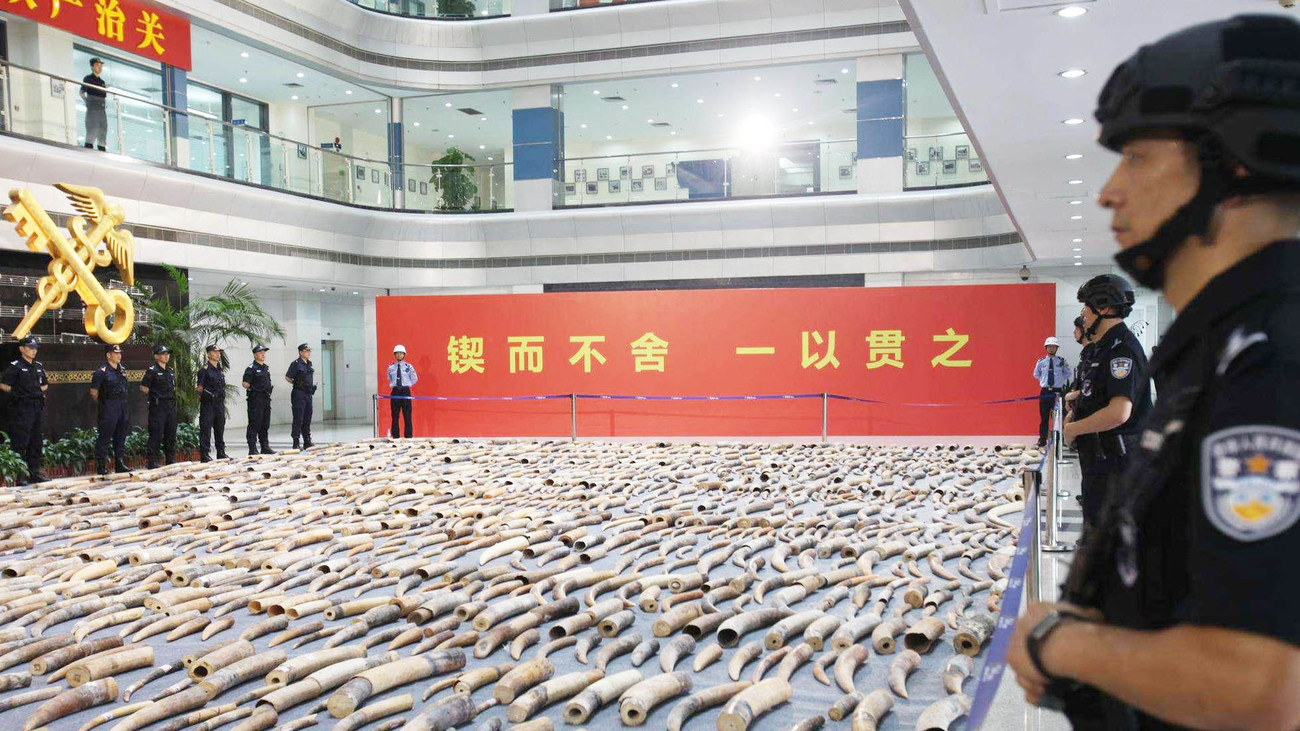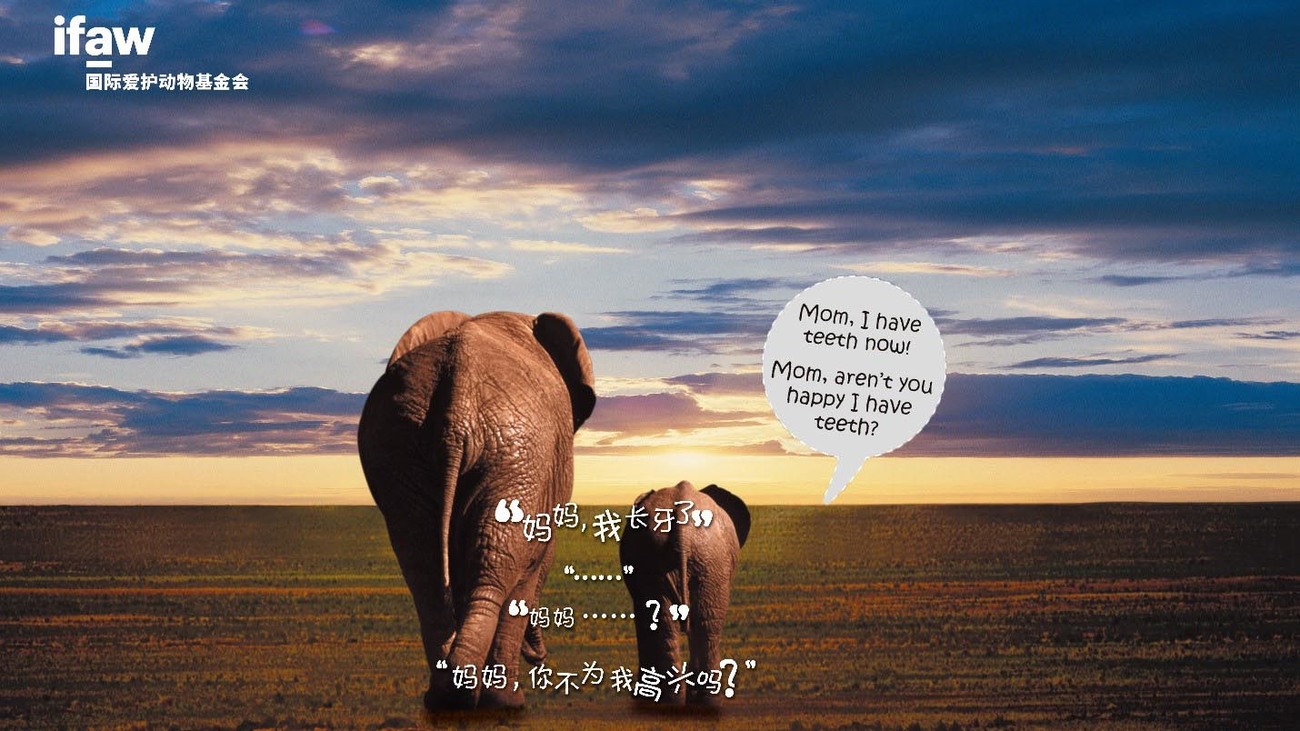China takes zero tolerance stance against wildlife trafficking
China takes zero tolerance stance against wildlife trafficking

On December 29th 2020, the Guangzhou Intermediate People’s Court handed down some of the most significant sentences ever seen against wildlife traffickers in China. 17 individuals faced prosecution in what was described as the largest ivory smuggling case in the history of the country. Two individuals, Chen Chengzong and Lin Zhiyong, received life sentences, the maximum possible penalty for smuggling the parts of protected species.
China will not tolerate illegal wildlife crime
The following week on January 5th, another court, this time in the eastern city of Wenzhou issued sentences ranging from 15 months to 14 years to another gang who had masterminded the trafficking of 23 tons of pangolin scales from West Africa between 2018 and 2019. The potential value of these shipments was over $20 million US Dollars, highlighting the vast profits that are being made from the poaching and trafficking of some our planet’s rarest and most vulnerable species.
We commend the law enforcement agencies and personnel involved in these cases, from those involved in the initial seizures, the subsequent investigations and those tasked with the prosecution. They send a strong signal that China will not tolerate any illegal wildlife crime. For too long, wildlife criminals have escaped serious punishment for their crimes and while these sentences are a step in the right direction, we urge the governments around the world together with the Chinese government to redouble the efforts to disrupt and dismantle these trafficking networks at home and abroad.
Collaborating to end wildlife trafficking
IFAW is proud of our collaboration with the Forestry Police, the Anti-Smuggling Bureau of Chinese Customs Administration, and other law enforcement agencies. Over the past five years, we have delivered training on tackling wildlife trafficking to over 3580 personnel across the country, providing tailored toolkits and other training materials that support the established training curricula. Our staff undertake research and analysis on trends in wildfire crime, contributing to the professional journals that form the knowledge base of these organizations.
We’ve promoted the cause of regional collaboration, bringing together law enforcers from China, Vietnam, and the Hong Kong Special Administrative Region (SAR) to promote and foster the cross border links and relationships that are essential to tackling international criminal enterprises. Using IFAW’s presence in The United Arab Emirates and Kenya we have gone further afield introducing China Customs Administration officials to their counterparts in key source and transit countries.
We recognize that law enforcement alone is not enough to secure a future where people and animals can thrive together. A holistic approach from reducing demand through awareness raising and public education, all the way to protecting nature is key in achieving long term sustainable success. For the past 25 years we’ve been engaging with policy makers and political leaders in China to promote the cause of animal welfare and conservation; communicating directly with consumers to encourage wildlife friendly decision making. We have also embraced the incredible energy and technical capacity of the private sector to find solutions to the growing online trading and trafficking of wildlife.
Reducing supply and demand of ivory
IFAW has been at the forefront of efforts to reduce the supply and demand for ivory in China, undertaking consumer research and calling for market closures as far back as 2007. In 2011 we worked with the government to ban ivory sales via auction houses, leading to a 90% reduction in the number of items for sale.
Our prize winning public messaging and social behavior change communications campaigns have been seen by tens of millions of individuals in key urban markets, airports, border posts and through the global media. The messaging was even adopted into the College Entrance Exam as a language question, reaching tens of millions of college applicants across China.

Tackling wildlife trafficking online
We recognized early on that the wildlife trade was growing rapidly online and collaborated with global e-commerce giant Alibaba to make its online marketplace unavailable for wildlife trade. In 2008, Alibaba and its Chinese subsidiary Taobao prohibited the trade of parts and products from elephants, tigers, bears, rhinos, pangolins, sea turtles and sharks, from online trading platforms. In response to the move of criminal activities to social media platforms, Baidu—the largest Chinese language search engine and social media giant Tencent also adopt zero tolerance policies against the trade of endangered species online.
IFAW continues its role in monitoring wildlife markets, helping develop keyword filters, training online company staff and providing information to law enforcement. In April 2020, IFAW and Baidu launched ‘AI Guardian of Endangered Species’ a deep learning tool that identifies images of endangered wildlife products traded online. These images are traced back to the source link and fed back to relevant network platforms for removal, greatly increasing the efficiency of our efforts to make these platforms a no-go area for traffickers.
In addition to technology companies, we’ve recently begun working with some of the biggest logistics companies in the world to address the use of their networks in domestic and international wildlife trafficking, such as the critical land borders between China and Vietnam in the Guangxi Zhuang Autonomous Region. With our trusted Government and private sector relationships, we are able to act as an effective convener of a wide range of partners, all of whose participation is essential to our goal of ending the scourge of wildlife crime and delivering meaningful change for animals.
For more information on our work on ivory trafficking in China visit our project page.
Related content
Our work can’t get done without you. Please give what you can to help animals thrive.